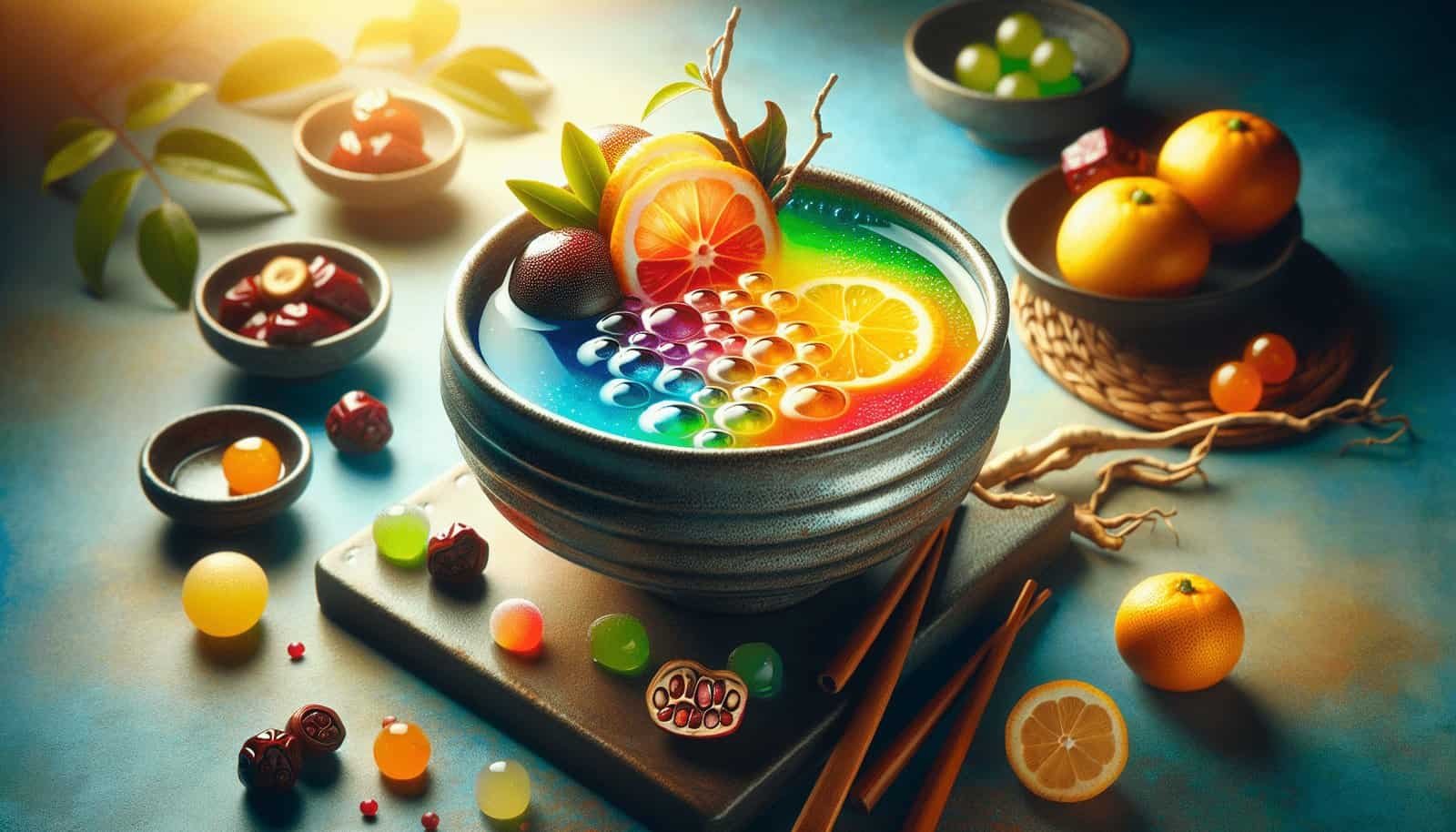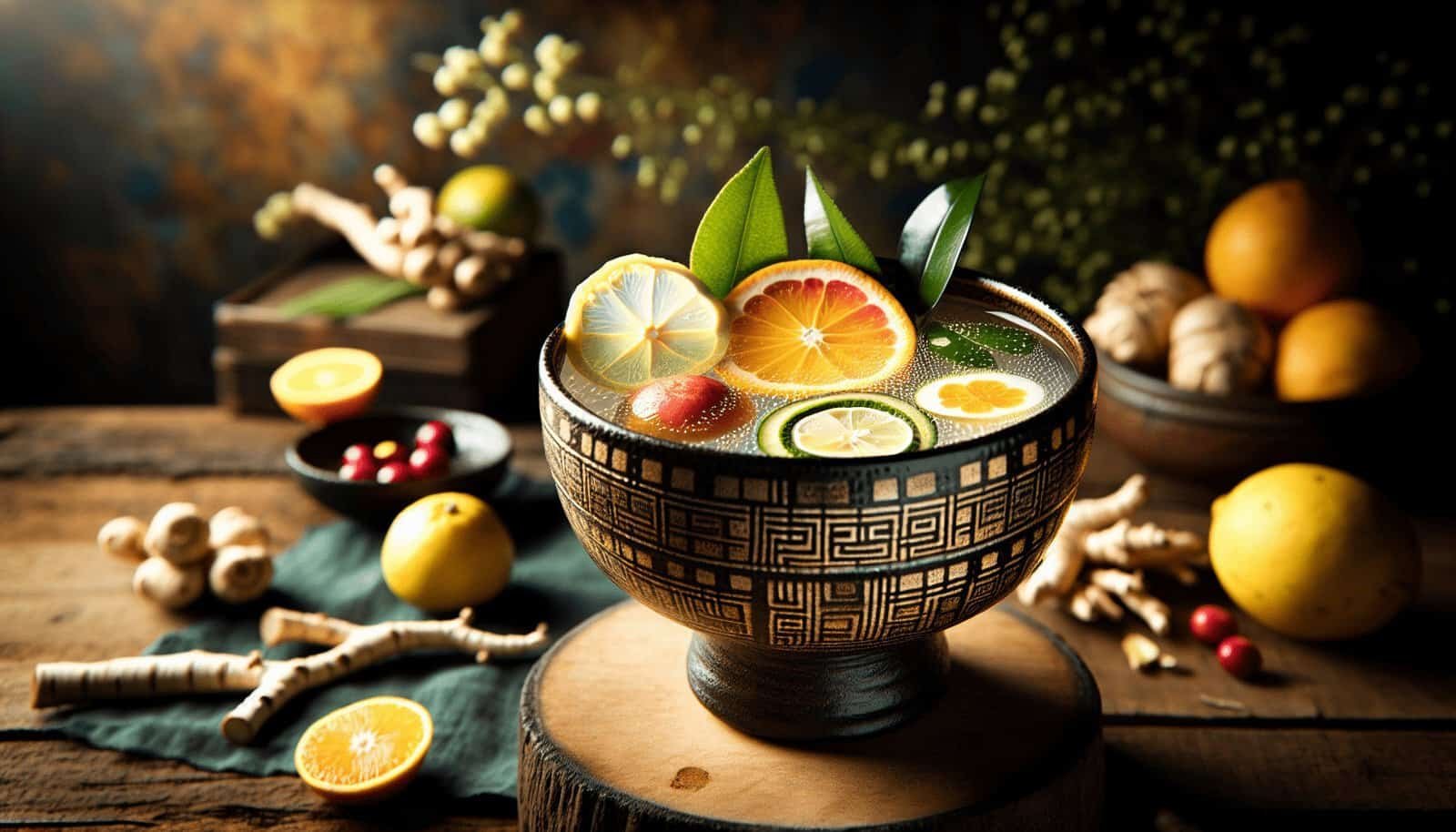Have you ever wondered how Korean ingredients are transforming non-alcoholic beverages? This fascinating trend has been steadily rising and offers endless possibilities. From traditional teas to innovative infusions, Korean ingredients are providing new flavors and health benefits to beverages around the world. Let’s dive into the latest trends and explore how these ingredients are making waves in the non-alcoholic beverage industry.
The Influence of Korean Culture on Food and Drink
Korean cuisine is renowned for its vibrant flavors, unique ingredients, and centuries-old traditions. Korean culture places a high emphasis on health and wellness, which is evident in their culinary traditions. The increasing global interest in Korean culture, particularly through the Korean Wave (Hallyu), has brought with it a surge in the popularity of Korean food and drinks.

Traditional Korean Ingredients Making a Splash
Many traditional Korean ingredients are becoming the stars of the beverage scene. These ingredients, known for their health benefits and unique flavors, are being incorporated into a variety of non-alcoholic drinks. Below, we take a closer look at some key ingredients and the beverages they’re transforming.
Ginseng
Ginseng has been a staple in Korean medicine and cuisine for centuries. Known for its energy-boosting and immune-supporting properties, ginseng is now being featured in various non-alcoholic beverages.
Common Non-Alcoholic Beverages with Ginseng:
| Beverage Type | Description |
|---|---|
| Ginseng Tea | A traditional Korean tea made with ginseng roots. |
| Ginseng-Infused Water | Bottled water with a subtle ginseng flavor. |
| Smoothies | Blended drinks incorporating ginseng powder. |
Yuzu
Yuzu, a citrus fruit commonly used in Korean cooking, is notable for its refreshing taste and high vitamin C content. It adds a unique citrusy flavor to beverages.
Popular Yuzu Drinks:
| Beverage Type | Description |
|---|---|
| Yuzu Tea | A sweet, tangy tea made with yuzu and honey. |
| Yuzu Soda | Sparkling water flavored with yuzu. |
| Lemonades | Traditional lemonade with a twist of yuzu. |
Omija (Five-Flavor Berry)
Omija, also known as the five-flavor berry, is cherished in Korea for its complex taste profile, which includes sour, sweet, bitter, spicy, and salty flavors. It’s rich in antioxidants and other beneficial compounds.
Omija Beverages to Try:
| Beverage Type | Description |
|---|---|
| Omija Tea | An herbal tea made from dried omija berries. |
| Fruit Punch | Punches incorporating omija for a unique twist. |
| Kombucha | Fermented tea infused with omija berries. |
Barley Tea (Boricha)
Barley tea, known as boricha in Korea, is a simple yet nutritious drink enjoyed by many. It’s known for its roasted flavor and digestive benefits.
Barley Tea Options:
| Beverage Type | Description |
|---|---|
| Hot Barley Tea | Traditional hot tea made from roasted barley. |
| Iced Barley Tea | Refreshing cold tea, perfect for summer. |
| Blended Teas | Mixed with other teas for unique flavors. |

Innovative Applications of Korean Ingredients
While these traditional ingredients are enjoying renewed popularity, innovative uses are also emerging. The beverage industry is experimenting with combining Korean ingredients with other global flavors and formats.
Fusion Beverages
Fusion drinks blend traditional Korean ingredients with modern beverage styles.
Examples:
| Beverage Type | Description |
|---|---|
| Matcha Omija Latte | Green tea latte with a hint of omija. |
| Ginseng Mocha | Coffee flavored with ginseng extract. |
| Yuzu Smoothie | A smoothie combining yuzu with tropical fruits. |
Health-Driven Beverages
With an increasing focus on health and wellness, beverages featuring Korean ingredients are often marketed for their health benefits.
Popular Health-Driven Mixes:
| Beverage Type | Description |
|---|---|
| Detox Drinks | Featuring ingredients like omija and green tea. |
| Immunity Boosters | Combining yuzu and ginseng for a health boost. |
| Digestive Aids | Blends promoting gut health, like barley tea. |

The Rise of Ready-to-Drink (RTD) Options
Convenience is key in today’s fast-paced world, and the non-alcoholic beverage industry is responding with a variety of ready-to-drink options that feature Korean ingredients.
Bottled Teas
Bottled teas are incredibly popular, offering the flavors of traditional Korean teas in a convenient format.
Bottled Tea Varieties:
| Beverage Type | Description |
|---|---|
| Ready-Made Ginseng Tea | Bottled tea brewed with ginseng. |
| Yuzu Ice Tea | Bottled ice tea with yuzu citrus. |
| Barley Tea | Traditional barley tea available chilled. |
Flavored Waters
Flavored waters offer a subtle yet refreshing way to enjoy Korean ingredients on the go.
Flavored Water Options:
| Beverage Type | Description |
|---|---|
| Yuzu Water | Bottled water with a hint of yuzu flavor. |
| Omija Sparkling Water | Sparkling water with omija essence. |
| Ginseng Water | Bottled water infused with ginseng. |

DIY Beverage Kits
For those who enjoy the process of making their own drinks, DIY beverage kits featuring Korean ingredients are becoming increasingly popular. These kits typically include all the necessary ingredients and instructions, making it easy to prepare traditional and modern Korean beverages at home.
DIY Tea Kits
Tea kits provide everything you need to brew authentic Korean teas.
Tea Kit Examples:
| Kit Type | Description |
|---|---|
| Ginseng Tea Kit | Includes ginseng roots and honey. |
| Omija Tea Kit | Contains dried omija berries and tea bags. |
| Yuzu Tea Kit | Comes with yuzu marmalade and tea mix. |
Smoothie Kits
Smoothie kits are perfect for health enthusiasts looking to incorporate Korean superfoods into their diet.
Smoothie Kit Examples:
| Kit Type | Description |
|---|---|
| Ginseng Smoothie Kit | Includes ginseng powder and fruit blends. |
| Yuzu Smoothie Kit | Packs yuzu powder with tropical fruit mixes. |
| Omija Smoothie Kit | Omija extract combined with berry blends. |

Conclusion
Korean ingredients have undeniably started to revolutionize the non-alcoholic beverage industry. With their rich history, unique flavors, and health benefits, these ingredients are becoming the stars of both traditional and innovative drinks. Whether you’re a fan of classic teas, ready-to-drink options, or DIY kits, there’s a Korean ingredient-infused beverage to suit every taste and lifestyle. So next time you’re thirsty, why not try a drink with a touch of Korean magic?
